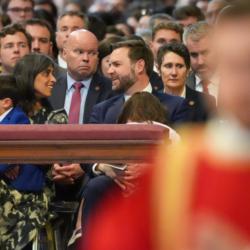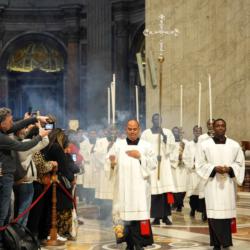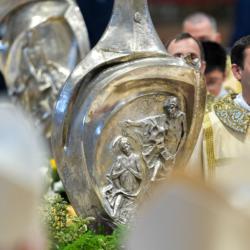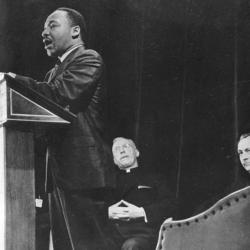Sudan needs world's attention, funding, peace, faith-based groups say
VATICAN CITY (CNS) -- Sudan, which is experiencing the world's largest and most serious hunger and displacement crises, needs urgent and consistent attention from the international community, the head of Caritas Internationalis said.
"Funding for relief efforts is not a gesture of goodwill but an indispensable lifeline to those caught in the crossfire of violence and displacement, who will die in millions otherwise," Alistair Dutton, secretary-general of Caritas Internationalis, said in a press release April 15, the two-year anniversary of conflict in Sudan.
Currently, more than 30 million people, which is more than half of Sudan's population, "now require urgent assistance," the press release said. Famine has already been declared in some parts of the country, according to the United Nations.
Two years ago, a violent struggle for power between rival generals erupted between the Sudanese Armed Forces and the paramilitary Rapid Support Forces in Sudan, which led to the displacement of nearly 13 million people and the worsening of Sudan's existing problems, such as disease outbreaks, economic and political instability, and climate emergencies, according to the UNHCR April 9.
Sudan had already been experiencing its highest levels of humanitarian need in a decade before the 2023 conflict because of violence and displacement caused by the Darfur crisis in 2003.
"Sudan's crisis demands urgent and unwavering attention from the international community," Dutton said in the written press release. Caritas Internationalis is the Vatican-based confederation of 162 national Catholic relief, development and social service agencies that operate in more than 200 countries and territories around the world.
"Humanitarian access must be prioritized and safeguarded, ensuring the delivery of critical aid to the most vulnerable, without barriers or delays," he said. "This is a moral imperative, a test of global solidarity, and an opportunity to bring hope and stability to a nation that has endured unspeakable hardships."
Dutton's comments came with the release the same day of a joint statement signed by the leaders of several Christian faith-based organizations, including Caritas Internationalis and the World Council of Churches.
"The ongoing conflict has further destabilized an already fragile situation, spiraling into a severe humanitarian crisis with increased violence, displacement and humanitarian needs, exacerbated by drastic global aid cuts," the joint statement said.
"The international community cannot continue to turn a blind eye to Sudan. We must act decisively to bring the parties to the negotiation table and work toward a sustainable resolution of the conflict," it said.
The leaders called on the international community to step up diplomatic efforts "to end the interference and funding of the conflict by external powers" and to secure a ceasefire as well as to increase funding to support local efforts, including community-based groups and faith-based organizations, "who are on the frontline of life-saving efforts."
They also called for a political process that was broader and more inclusive to address the root causes of the violence in Sudan and for the respect of international human rights law by all parties, including "ensuring safe unimpeded humanitarian access to those most in need."
The joint statement highlighted the critical importance of local groups and community-based networks in Sudan in coordinating aid and countering hate speech and divisions.
However, despite their essential role and the great risks they face, direct funding and protection for these groups "remain alarmingly low," it said, as they "continue to receive less than 1% of international aid."
The statement and appeals also came as Britain was co-hosting a meeting in London to discuss possible paths to peace for Sudan. Those attending included ministers from the European Union, the African Union and the United Arab Emirates while Sudan's warring parties were not invited.



















